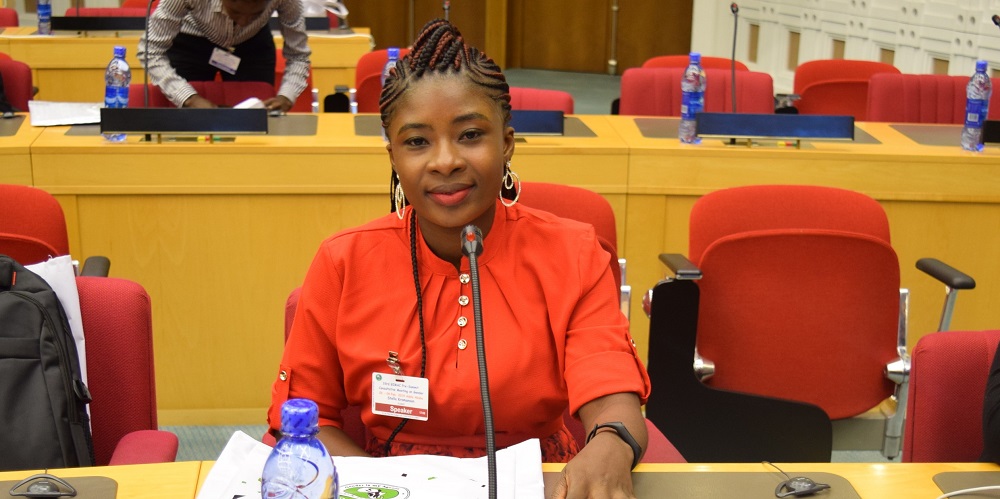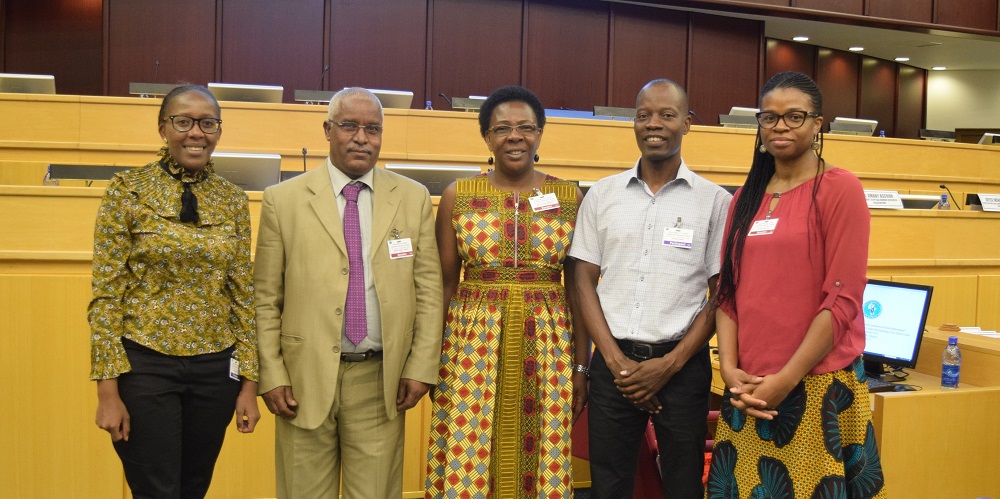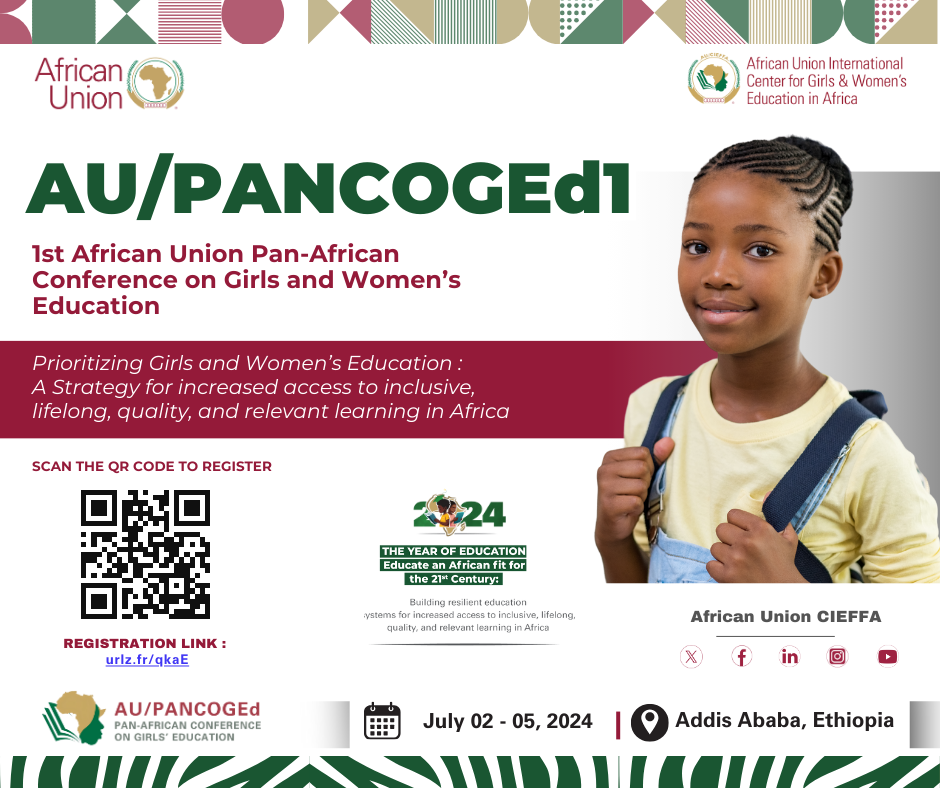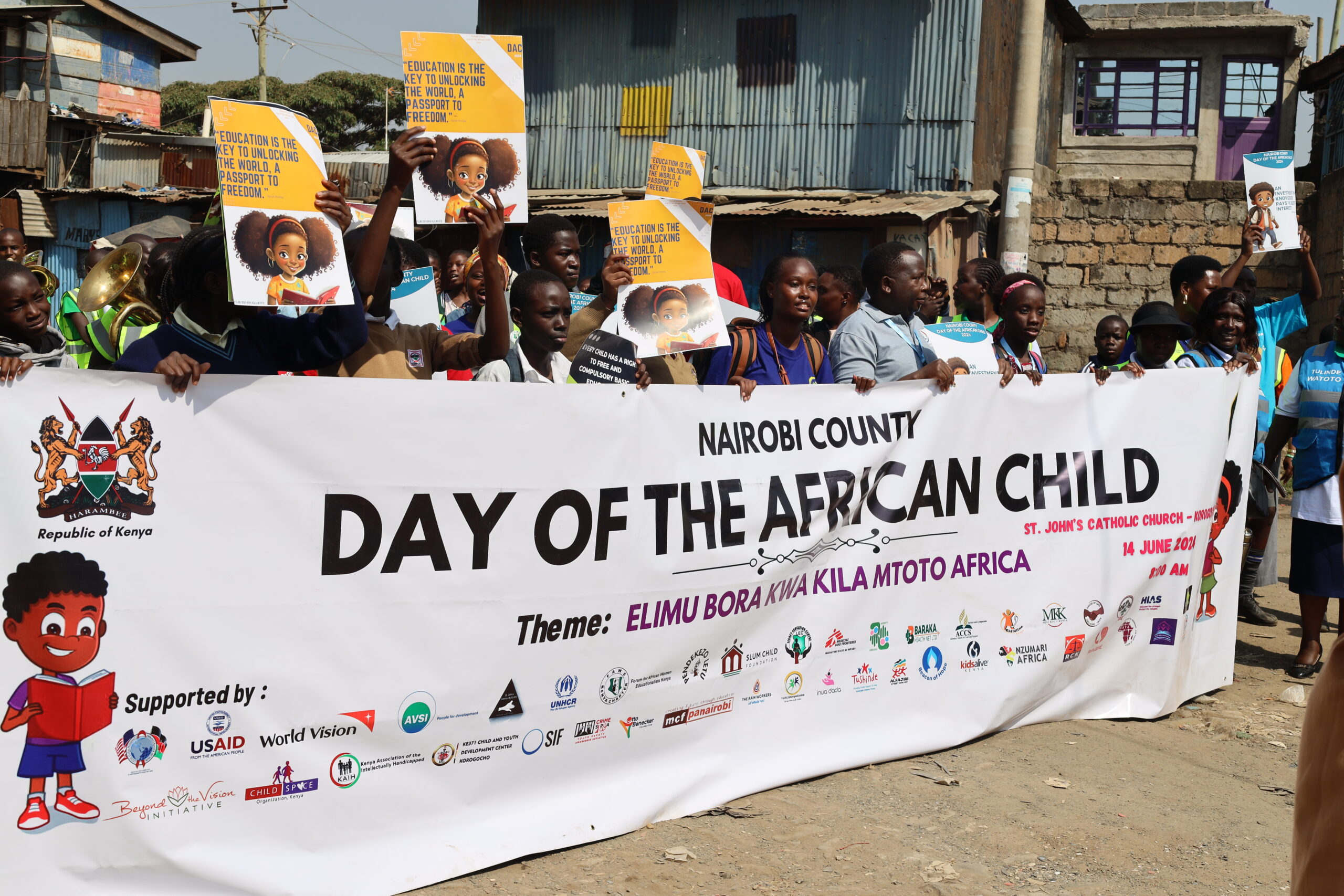There is an urgent need to create sustainable education opportunities for women and girls in forced displacement situations. This need was clearly demonstrated when FAWE facilitated a panel discussion the issue during the 33rd Gender Is My Agenda Campaign (GIMAC) pre-AU Summit meeting held 3rd February 2019 in Addis Ababa, Ethiopia. These discussions were held in the context the 33rd GIMAC summit with the theme ‘Towards Gender-Responsive durable solutions to forced displacement’ which was in line with the 2019 African Union’s theme, “Year of Refugees, Returnees and Internally Displaced Persons in Africa: Towards Durable Solution to Forced Displacement”.
A key outcome of this discussion was the need to strengthen partnerships and collaboration of organizations and bodies that work to promote education in conflict and post conflict situations. “We need to strengthen collaboration with Regional Economic Communities such as IGAD and learn from their experience in education for refugees, returnees and host communities through innovative policies and practices at both regional and national levels,” said Dr. Kebede Kassa Tsegaye, Senior Advisor on social development and Coordinator of IGAD Programs on Education, Science, Technology and Innovation (ESTI).
From the discussions, it was evident that re-integration of women and girls to formal and informal education opportunities in conflict situations is faced with myriad challenges including lack of tailored curriculum that puts into consideration the needs of these girls and women. Ms. Victoria Egbetayo, Partnerships Specialist and Regional Advocacy Lead at Global Partnership for Education (GPE), highlighted other hindrances girls face in a bid to go back to school post conflict, with an emphasis on the lack of proper implementation of policies that are meant to promote reintegration of girls and women to school. “It is necessary that we improve our data collection systems to enable gender responsive policy formulation and implementation”, said Ms. Egbetayo, who also touched on the importance of addressing the education needs of displaced girls and women living with disability.
Ms. Stella Kromanson, a FAWE Sierra Leone Alumnus and survivor of conflict shared her experience of gender discrimination during the Sierra Leone war in her bid to access education upon returning home post displacement. “Upon our repatriation back home, acquiring basic needs was a challenge. This meant education was out of the picture especially for me as a girl child since boys were given the priority. At this point, it was clearly spelt out to me by my parents that I had no chance of continuing with my education and this was bitterly received. I was very devastated.” Ms. Kromanson challenged government officials present to put in place policies that would ensure refugee girls are also given an equal chance to go back to school just like their male counterparts. She highlighted the need for giving child mothers given a second chance to go back to school, particularly for the cases where they conceived as a result of sexual violence during the war.
The outcomes from these discussions were incorporated into the 33rd GIMAC Outcome Document that was presented at the African Union Heads of State Summit requesting them to prioritize investment in education among refugees, returnees and displaced girls and women. According to the 2019 Global Monitoring Report on Migration Displacement and Education, the number of displaced persons in the world was estimated at 87.3 million as of the end of 2017. These displaced persons included asylum seekers (3.1 million), Internally Displaced Persons (58.8 million) and refugees (25.4 million). The report further highlights that forced displacement is to a large extent caused by conflict and violence. As of the end of 2017, 40 million of the IDPs recorded in the world moved to protect themselves from conflict and violence that prevailed in their countries. It is therefore necessary that education is given a priority because through education, citizens are able to resolve conflict in non-violent ways which would reduce displacement.
GIMAC is a network of more than 55 civil society organizations promoting gender equality and accountability for women’s rights. Guided by a select theme, the network meets every year to deliberate on key issues affecting girls and women on the continent. FAWE in her capacity as a lead organization on gender equality in education serves in the GIMAC Steering Committee and is the current chair of the network (2017-2019).









Leave A Comment